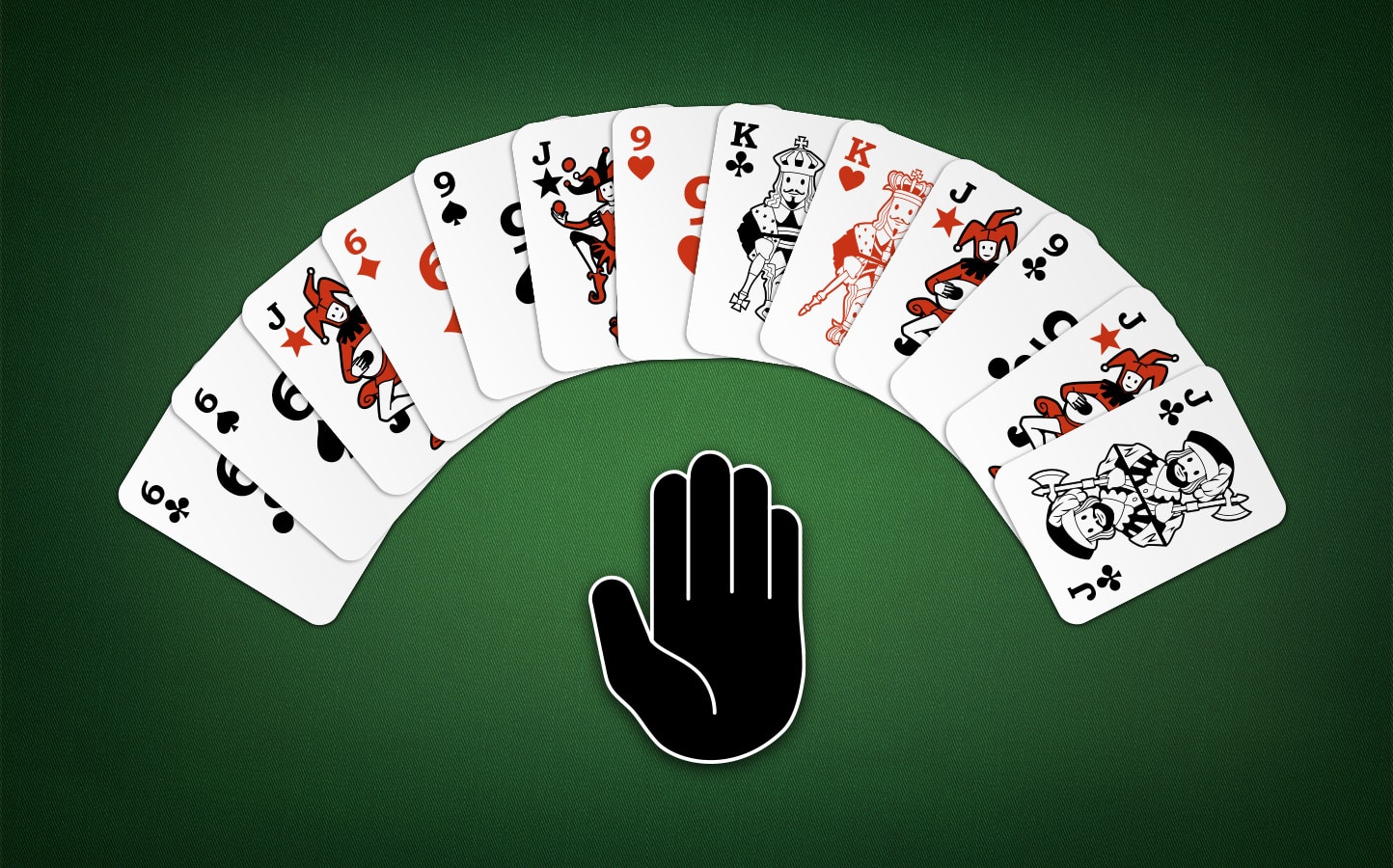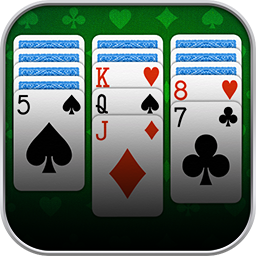Sometimes you are lucky, and your starting hand is already full of complete runs and groups. You are only very few cards away from playing all of them at once and being ultimately victorious. We take a closer look at when it is worthwhile to speculate for going rummy and what you can do to keep your opponent from doing that.
What Does Going Rummy Mean?
In theory, the rules around going Rummy are simple, as we discussed in the Rummy manual. There are two conditions:
- Be the first player to place any melds on the table, and
- Finish your turn empty-handed. Caution: The last card must go to the discard pile!
When you can do that, you do not only win, but you are also doubling your score. And that is absolutely worth it most of the time since your opponents are still holding all of their cards. Going rummy successfully might decide who will get the jackpot at the end of the table.
But you need to be quick to go Rummy. Once another player beats you to playing the first meld of the round, your chance is gone.
High Reward for High Risk
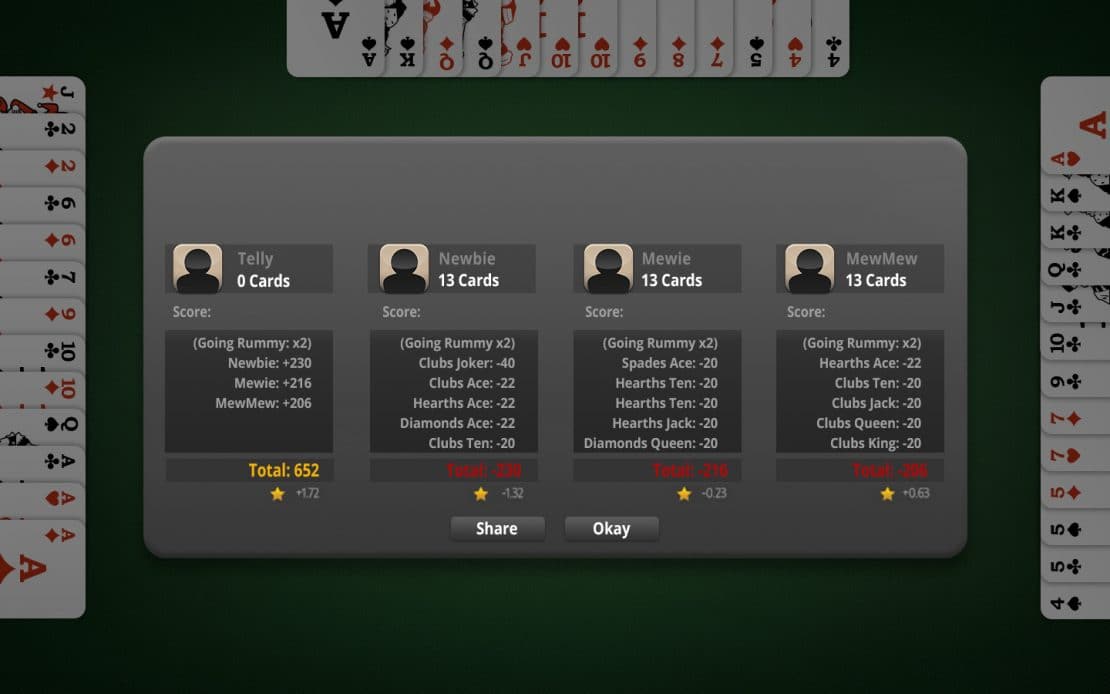
Going rummy comes with plenty of points. But if another player leapfrogs you, it might backfire. At worst, your opponent is going Rummy themselves, and all the great cards in your hand score against you now – twice over. That is why it is important to precisely evaluate if the risk is worth it.
Whether you should attempt going rummy or not mainly depends on your starting hand and your luck in quickly gaining the fitting cards. If you have to wait for them too long, it is time for a change of plans.
When to Save up for Going Rummy
In the best case, your starting hand is strong enough to play it all in your first turn. But that case is very rare. It is more likely that you are missing a few cards. Having only a few gaps and many Jokers is good but not enough on its own.
The crucial question is: How many passes will you probably need to draw the missing cards? When you think you will get the missing cards within very few turns, you can take the plunge. As a very vague guideline, we say: You have to be able to go Rummy by your fifth turn.
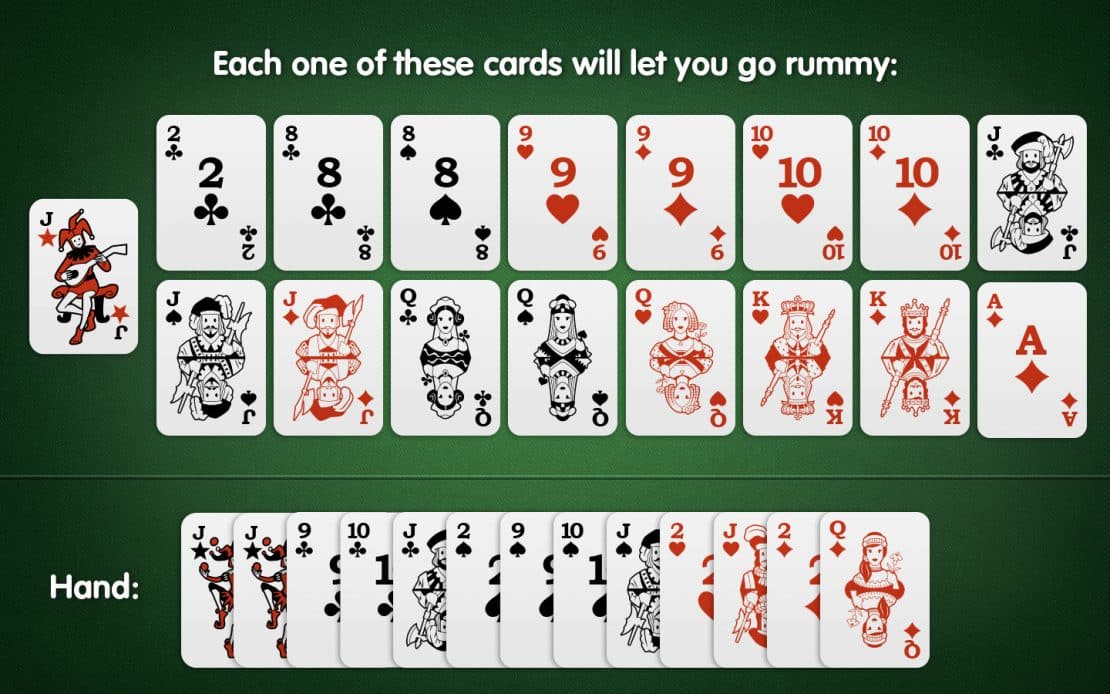
If that works out for you depends entirely on the assortment of your hand. If you need one specific card, it is unlikely for you to draw it that soon. When four or more different cards could complete your hand by drawing only one of them, your chances look bright.
… And When Not To
Few or no Jokers, long runs with every other card missing, and several single cards that will not fit anywhere – with a hand like this, you have no business attempting to go Rummy. In such a case, you should play your first meld as soon as possible. Even when you do not see a chance to win the round, at least you minimize your potential losses like that.
It gets more complicated when you have a relatively strong hand, but two or three single cards remain mismatched. Or when you are missing one specific card to complete your first meld.
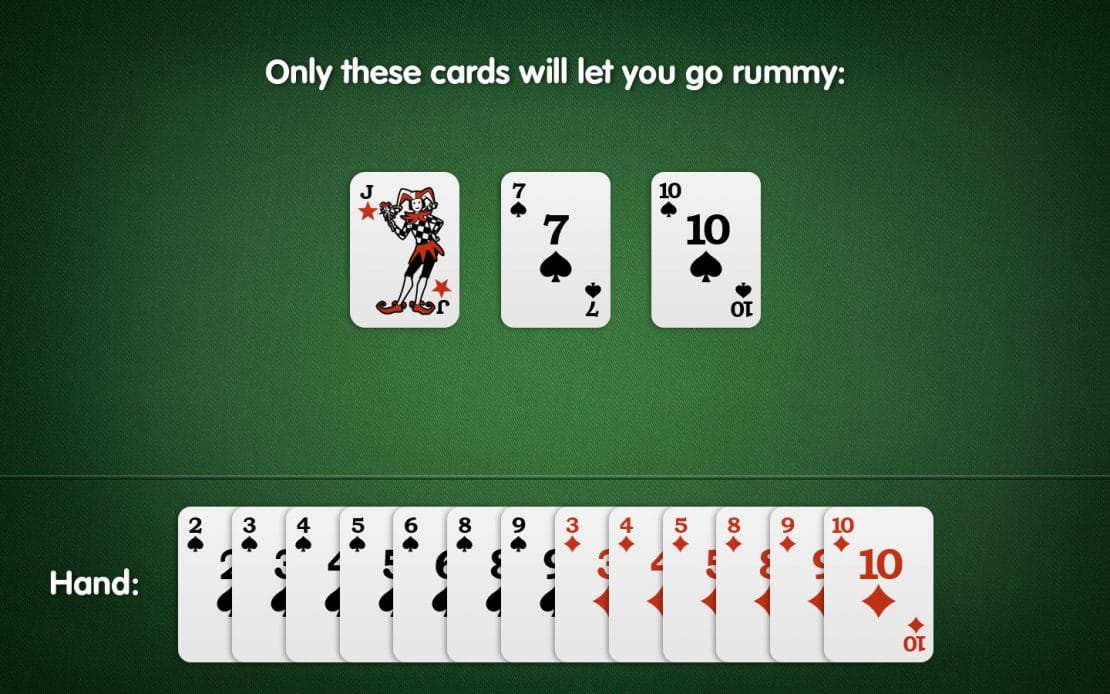
With a ton of luck, the missing cards might fly into your hands in your first two turns. But with the tiniest bit of bad luck, you have to wait for a long time to close the gaps or swap the single cards for more useful ones. Now you need to decide, how big a risk you are willing to take.
Do Not Hesitate
With each new pass, the risk of one of your opponents going rummy rises.
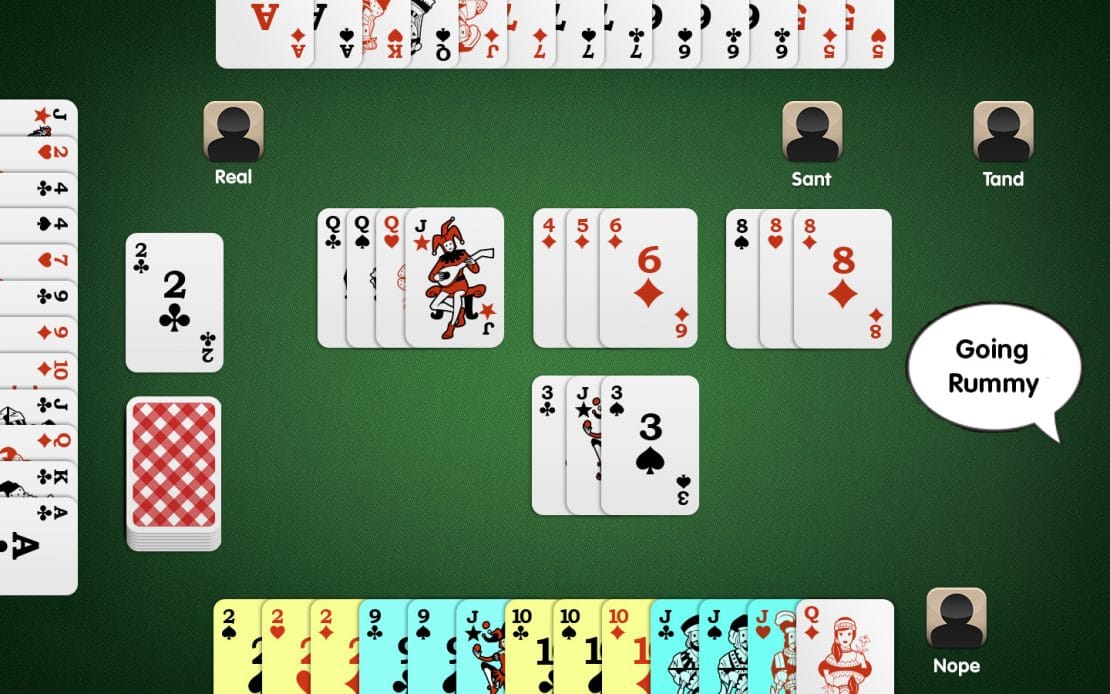
You can prevent that by playing your first meld sooner. As soon as cards are on the table, the chance to go Rummy is over – for you and your opponents.
Even when you are close to going rummy, you should reevaluate in each turn if it is really worth is waiting a little longer.
In case of doubt, it is safer to give up going rummy yourself and at least play yout first meld. Should your opponent empty their hand in their next turn, at least the points will not double up anymore. And the points for your first meld are no longer in your hand, too.
Going Rummy and the Number of Players
When considering to go Rummy, you need to take the number of players into account, too. With each additional player, the risk, as well as the potential gain, is rising.
While only one opponent can beat you to going rummy in a game of two, the risk for that is three times higher with three opponents. In a game with many players, it is thus safer to play your first meld rather too soon than too late. But if you manage to go Rummy once, your fellow players will have a hard time catching up to your score in the following rounds.
You notice that many aspects factor into going rummy. The important decision of whether you should use one more turn to save up for going rummy or if the risk is getting too high is mostly based on personal game experience. So, try out different tactics, preferably with different numbers of players, and find your own strategy!
If you would like to read other rules before doing so, you can find our manual here. Or take a look at our other Rummy Lessons.
